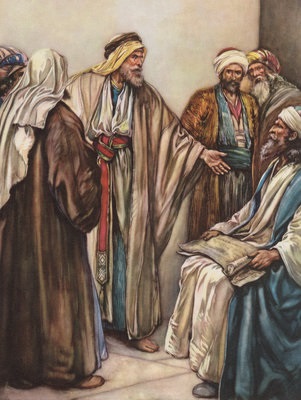Read Acts 15:7-11. What was Peter’s contribution to the debate in Jerusalem?
Luke, of course, does not report all the proceedings of the meeting. It would be interesting to know, for example, the supporting arguments of the Judaizers (Acts 15:5), as well as Paul’s and Barnabas’s responses (Acts 15:12). The fact that we have only Peter’s and James’s speeches shows the importance of these men among the apostles.
In his speech, Peter addressed the apostles and elders, reminding them of his experience with Cornelius years before. In essence, his argument was the same one that he had used before the brethren in Jerusalem (Acts 11:4-17). God Himself had shown His approval of Cornelius’s conversion (even though he was an uncircumcised Gentile) by giving him and his household the same gift of the Spirit that He had given the apostles at Pentecost.
In His divine providence, God had used no less a person than Peter to convince the Judean believers that He makes no distinction between Jews and Gentiles with regard to salvation. Even if they lacked the purifying benefits of Old Covenant rules and regulations, the believing Gentiles could no longer be considered unclean, because God Himself had cleansed their hearts. Peter’s final statement sounded very similar to what we would expect from Paul: “We believe it is through the grace of our Lord Jesus that we are saved, just as they are“ (Acts 15:11, NIV).
Read Acts 15:13-21. What solution to the Gentile problem did James propose?
James’s speech suggests he was in a position of authority (compare with Acts 12:17; 21:18; Galatians 2:9, 12). Irrespective of what he might have understood by the rebuilding of David’s tabernacle, which in Amos’s prophecy refers to the restoration of David’s dynasty (Amos 9:11, 12), James’s main purpose was to demonstrate that God had already provided for Gentiles to join, in a sense, a reconstituted “people of God”, and thus they could be incorporated into Israel.
Because of this, his decision was that no further restrictions should be imposed on Gentile converts, other than those which normally would be required from foreigners who wished to live in the land of Israel.
